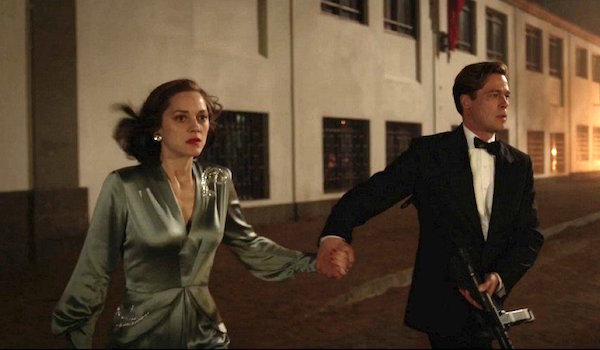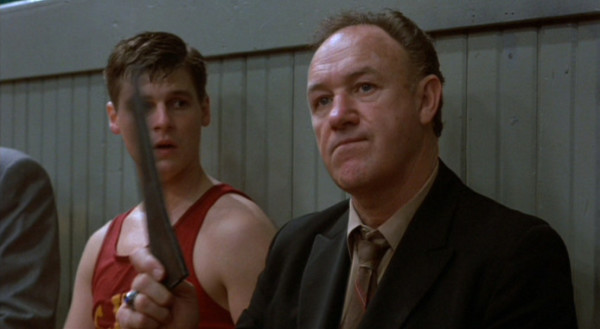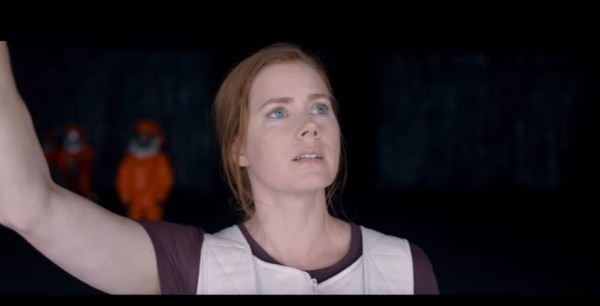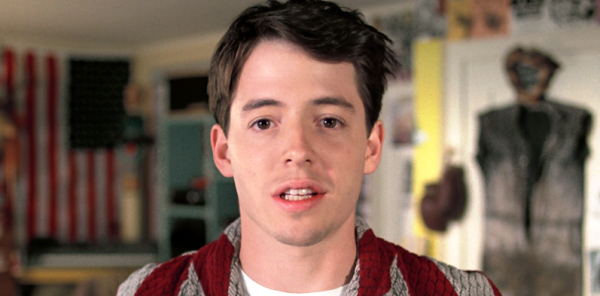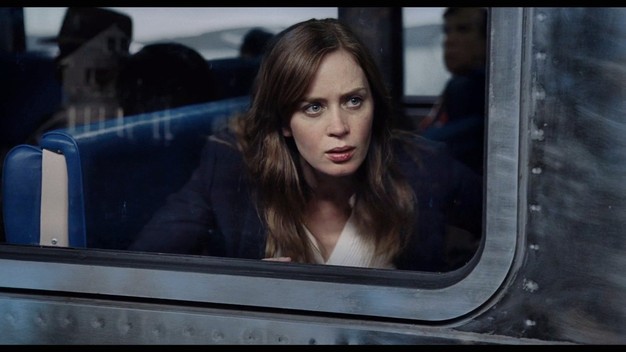Michael Jackson once sang, “I’m looking at the man in the mirror. I’m asking him to change his ways.”
I don’t know if mega-star screenwriter Steven Knight (Allied) is a Michael Jackson fan or not, but I was reading an interview he did at Slash-Film the other day, and one of the questions asked of Knight was one that has pockmarked the screenwriting community for centuries. It’s the closest thing we have to a trigger question. Our equivalent of a political nut walking into a room and saying, “I can’t wait for Trump to build that wall.”
“SHOULD YOU FOLLOW THE RULES?”
Early in the interview Knight says that he avoids following screenwriting rules, specifically the one that states a character has to CHANGE over the course of a movie. When then asked which rules he isn’t fond of, Knight doubled-down on character change…
I mean, the arc thing is interesting. It’s good sometimes to have a character that starts as one thing and ends as another, but James Bond, Hercules, these are pretty enduring stories. [Laughs] Like a Greek myth. In a Greek myth, you can have the characters and objects, and it just goes through these events in the same as a computer game now.
I’ve always found this discussion fascinating because I believe it’s essential that a character change over the course of a movie. In fact, I’d argue that 99% of main characters in films do change, and that if your character doesn’t change in some way, we’ll feel let down, even leave disliking that character.
The only time a character doesn’t change and it still works is when that character dies because of their inability to change. I just watched Hell or High Water, and in that movie, the trouble-making brother lived a selfish sinful life. He never changed his ways (spoiler) and he ended up dying because of it. We also saw this with Robert DeNiro’s character in Heat.
Here’s where everyone gets tripped up though. They think that “change” has to happen along the traditional lines of assigning your character a flaw, and then having that character overcome that flaw by the end of the movie.
I agree that, when done well, this is the most effective way for change to work. When a selfish character (Trainwreck) learns to become selfless, we feel warm inside. When a stubborn character (Hoosiers) learns to listen to others, we feel tender inside.
However, the more scripts I read, the more I realize this type of change doesn’t happen often. And a look into history tells us why. The time when this advice became popularized was in the 80s and 90s, a period when comedies, rom-coms, and less serious fare dominated. In those movies, the “flaw-change” worked perfectly. The films (along with animated and sports movies), were already skirting reality, so the fact that this unrealistic 180 degree character turnaround occurs at the end of the movie didn’t faze anyone. They bought into it wholeheartedly.
But when you watch a movie like Drive or Bourne or Mad Max or Arrival – you don’t see traditional flaws explored. And because you don’t, you don’t see that arc Knight is referring to.
BUT…
Those characters still change. And the reason screenwriters miss it is because they’re looking specifically for the flaw-change. But alas, my screenwriting snickerdoodles, there are OTHER WAYS TO CHANGE A CHARACTER.
Two big ones, in fact:
LEARNING
and
OVERCOMING
Learning is just like it sounds. The character doesn’t have to become a different person by the end of the movie, which is where rule-defamers get their panties in a bunch. But they do need to learn something. I consider this a “mini-change,” and while not as earth-shattering as a core change, it still leaves the audience feeling good, since the character has evolved.
One of my favorite movies of all time is Ferris Bueller’s Day Off, a film used by flaw-change naysayers as proof that your main character doesn’t have to change over the course of the film. Ferris Bueller has no flaw, they say. And therefore he doesn’t fix his flaw by the end of the movie.
But let’s look at that analysis more closely. Is Ferris Bueller the same person at the end of that film as he was at the beginning? I’d say no way. Ferris has LEARNED two valuable lessons – the value of friendship (with Cameron) and the value of family (with his sister). If Ferris hadn’t changed, he’d still be joking around when Cameron has a breakdown destroying his father’s car. If Ferris hadn’t changed, he wouldn’t have connected with his troublemaker sister, who saves his ass at the end of the day.
The operative word here is that Ferris has LEARNED something. And if you’re not going to add a full-scale flaw-change, this is a nice secondary option. Make sure your character has learned something by the end of the day. It doesn’t have to be big. But it should make us feel that, going forward, the character is better equipped for life.
Next we have “OVERCOMING,” and overcoming comes in two flavors:
LOSS
ADDICTION
Movies that tackle these subject matters tend to be more serious. As a result, the gimmicky “overcoming a flaw” stuff doesn’t work as well (it can work, but it takes more skill to do so). The good news is, this is a fairly easy “change” to pull off. Since the problem is built right into the character, all you have to do is have the character overcome that problem and they have “changed.”
Arrival is an example of “overcoming loss.” Amy Adams’s character, Louise, has lost her child. Her entire life is defined by this loss. By the end of the movie, she’s able to find peace with the loss and move on. Louise is in a better place at the end of the movie than she was at the beginning (note: I know it’s more complicated than that because of the time stuff – but I don’t want to get into spoilers here).
I want you to think about that for a second because it gets to the heart of why, I believe, Steven Knight is wrong. If Louise is the same bummed out hopeless person in the last frame of the movie as she was at the beginning, would we be satisfied? I’m willing to bet you’d all have the same reaction: “Well what the fuck was the point of that then?” This is why change is important. It makes us feel like the journey we just went on had a point.
For an example of a character overcoming addiction, look no further than The Girl On The Train. That film is about a woman whose drinking is so bad, it’s preventing her from solving a murder. If she doesn’t change her ways (her drinking), she will wallow in this drifting pointless existence til the day she dies. Change is imperative for her to succeed and for us to feel satisfied. And she does just that.
And that’s what I want to get across here. Characters must change over the course of the story. It doesn’t have to be with a flaw. It can be by learning something. Or it can be by overcoming something within. But they can’t be at the exact same point at the end as they were at the beginning, or else what’s the point of making us watch your stupid movie for two hours?
I’m so sure of this, that I pose a challenge to you: Name me any good movie where the main character doesn’t change in the three ways listed above (flaw, learn, overcome) where the character doesn’t then end up dead.
And yes, I know the first film you’ll go to is the James Bond series. I don’t know these films well enough to argue against them. But I have a feeling that, in a lot of Bond films, Bond learns something by the end of the movie. Especially in the Daniel Craig versions, which are more character-driven. But what I’m really curious about is if anyone can give me examples other than Bond. And remember, the films have to actually be good! Meaning, the act of not changing the characters resulted in a strong film.
Go at it!

